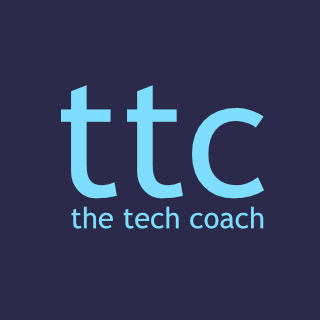Blog
News & Upates
Final Project – Course 4
My thoughts went straight to a media unit on music videos, not only because I just started teaching it halfway through Course 4, but because it has COETAIL written all over it – starting right back at the beginning with Course 1. I teach media to Grade 9 students and...
Keeping up with The Pedagogies
There are more resource links than Black Friday discount deals this week on COETAIL! Nevertheless, I managed to wade my way through them all, like grinding through levels in World of Warcraft, to come up with a coherent vision of how what it looks like in my...
Cast Away
I feel that some of my students struggle to break out of the shallow waters of learning, and out into the deep! They might be afraid of feeling ashamed if they can’t complete a task, fear being judged for example, and therefore stay in the safe waters, where they can...
Destination Deep Learning
I am all too happy that we are driving the change, given that the destination is deeper learning; I just hope my passengers don’t ask me “are we there yet”, given the technology they have at their fingertips (Google/Apple Maps) I am sure they will be all too aware...
Jump into the Deep End (of learning)
I have a simplistic but genuine attitude to my teaching practice which is to put the learners at the heart of what I put into practice. Whilst there is nothing wrong with this ethos, it is in need of a revamp after this week’s readings on learning partnerships and...
Meet Tim, SAMR and T-Pack
This week’s readings were so heavy, that my poor little Northern Irish brain was exhausted from reading the acronyms alone! Reading the frameworks was like the Crossfit equivalent to the Open workout 20.3 – where we had to do 21-15-9 reps of 315lbs, intersected with...
Course 3 Final Project
I have delivered a few professional development sessions in the past. Including, small one-to-one sessions for teachers on everything from how to use Nearpod, to using Cospaces to teach English as an additional language. I have also introduced a whole-school...
Empower Learners with Flipgrid
I first heard about Flipgrid back when it was released, but I never got around to using it! I guess I was too busy to find carve out the time to investigate it further. Ironically, having now used it today, it is blisteringly easy to use and it has bags of potential...
Understanding the Irish Border – Infographic
Infographics are simply the best for communicating information as quickly as Short Circuit’s Johnny Five can read a book. Moreover, they are brilliant to help EAL students learn facts quickly about a given topic. I mean who doesn’t love a pimped-up poster!? Purpose...
Visual First Aid
I feel like I need to go back and change not just one slide that I have made, but all of my slides from all of my presentations – someone please grab the visual first aid kit! I exaggerate. I do tend to keep the amount of text on the minimal side, but I have made some...
Facilitate and Collaborate
Another week, and another task that I am overly familiar with. Thank you COETAIL, the timing is proving to be most convenient for me. I have used Kagan's cooperative learning structures for a few years now. I am aware that cooperation and collaboration aren’t entirely...
How to Make Your Website More Appealing
The whole point of having a strong visual hierarchy is to first attract the reader visiting your website, then lock them in your tractor beam and draw them into your website/world/magazine, etc. And, if it’s online you must do this within 10 seconds – otherwise,...
Symbaloo Review: Organize Links
Essentially Symbaloo lets you organize all of your favorite websites/links, onto a webpage. Before Symbaloo came along, my life was as disorganized as Boris and Brexit. Now, thanks to Symbaloo, all my links are saved in one place and you can access these from any...
Free to Use Images: UnSplash and Pixabay
A colleague asked me what was the easiest way to find free-to-use images, which her students could use for a space exploration presentation without requesting permission to use said images. Of course, the easiest and quickest solution is to use Google. Type in your...
Storyboard That: Review
Storyboard That is a free website where you can create your own storyboards to help visualize a scene or event. You get to choose from a fun selection of scenes and characters. It could be useful for demonstrating an understanding of a given topic such...
